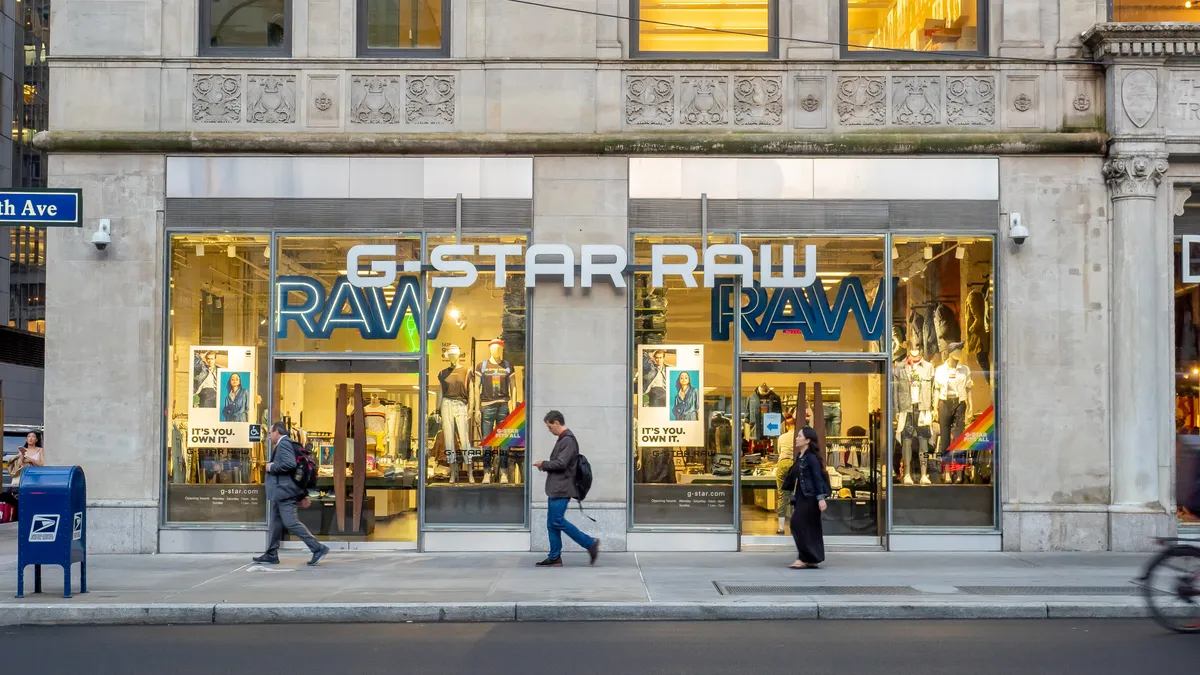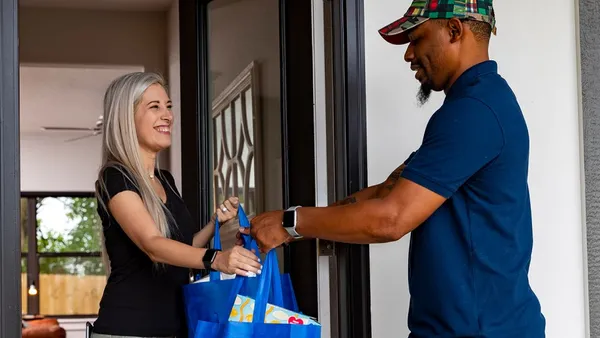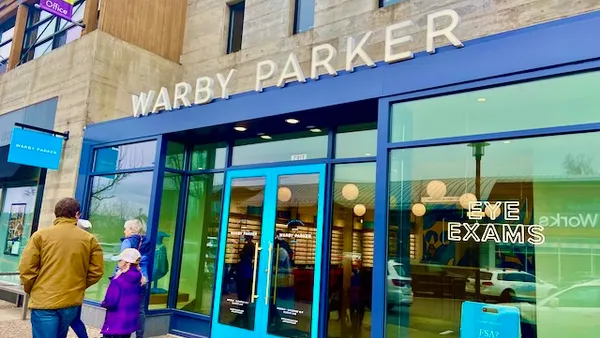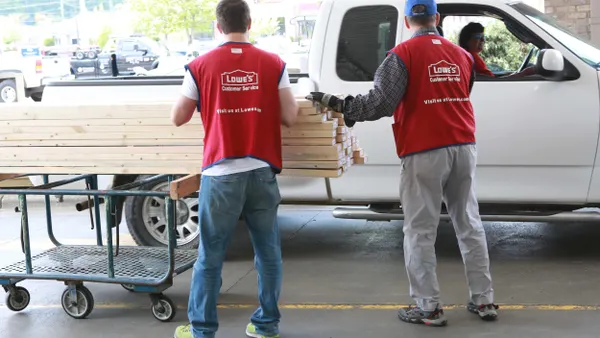Dive Brief:
- Apparel maker and retailer Lucky Brand filed for Chapter 11 Friday with a plan to sell itself in bankruptcy for at least $140 million.
- The company has a deal lined up to sell its intellectual property to Authentic Brands Group. Under the deal, Lucky Brand would also sell its operating assets to Sparc Group, which operates the Aéropostale and Nautica brands (both owned by Authentic Brands). The Authentic Brands deal would set the baseline for a bankruptcy auction, which Lucky Brands is aiming to complete by mid-August, according to court documents.
- Also last week, denim specialist G-Star Raw filed for Chapter 11. The brand, which operates more than 30 stores, entered bankruptcy in part because it was unable to negotiate rent concessions from landlords that would have helped it navigate the COVID-19 pandemic, according to G-Star's CEO.
Dive Insight:
The march of bankrupt retailers citing the difficulties posed by the COVID-19 pandemic continues without any signs of slowing down soon.
In a press release, Lucky Brand said it was using the Chapter 11 process both to "facilitate" its sale to Authentic Brands and "reduce its debt burden caused by recent challenges, including the COVID-19 pandemic." Executive Chairman Matthew Kaness said that the pandemic and its effects have "severely impacted sales across all channels," and that business has not fully recovered yet.
Similarly, G-Star CEO Nicole Clayton said in court papers that COVID-19 "severely disrupted the Debtors' business operations, and the global fallout from the pandemic is ongoing." The retailer also faced capital needs for stores damaged in "looting during a period of civil unrest" in May and June.
For G-Star, the difficulties from the pandemic have also sharpened the need to rightsize its store footprint, a process made easier by Chapter 11. Clayton said the company hopes to use Chapter 11 to restart operations, including profitable stores.
Lucky Brand, which runs 112 stores and 98 outlets in North America, is looking to restructure its retail operations. In bankruptcy, it is looking to close 12 stores with "burdensome, unexpired leases" after trying to negotiate concessions from landlords, Mark Renzi, who is serving as the company's chief restructuring officer, said in court papers.
Beyond rent, Lucky faced a liquidity crisis exacerbated by the pandemic, as store closures cut off a major source of revenue. Limited liquidity in turn led to "diminished access to new inventory" from vendors, Renzi said.
These are all pains being felt throughout the retail world, and are falling hard on apparel retailers in particular. Even as retail sales in aggregate have gone through a rebound, after months of unprecedented mass closures, clothing store sales remain steeply below last year's levels. Some analysts expect discretionary retail sales to remain below 2019 levels past next year.
While much of the retail world has been able to absorb the sales declines, in part by taking on new debt and pushing out rent payments, those already struggling with liquidity or burdensome debt are facing full-blown financial crises. Other apparel retailers, including RTW Retailwinds, Tailored Brands and Ascena, are all facing a possible bankruptcy in the near term.
















